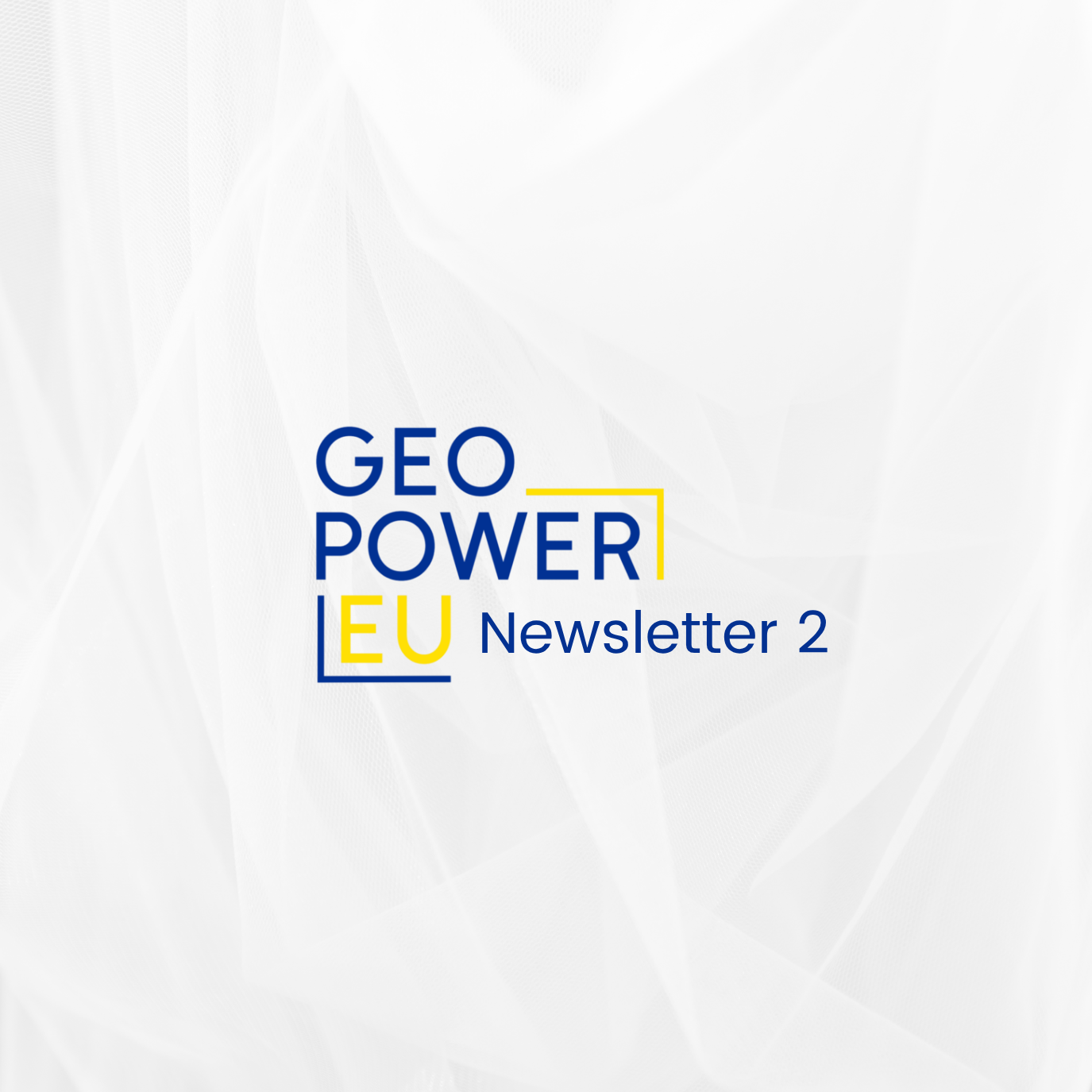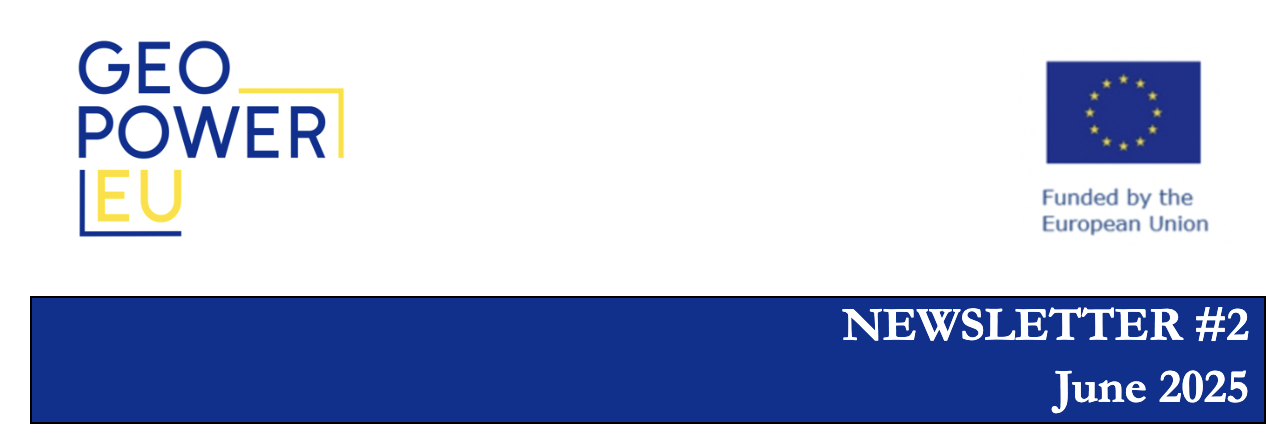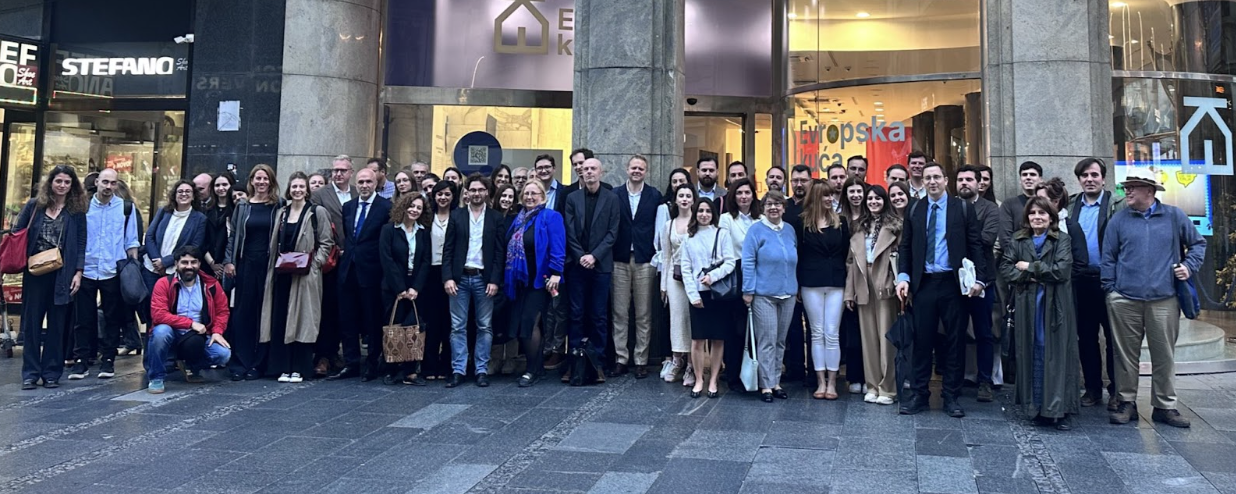FEATURED: GEO-POWER-EU Interdependence Database and Weekly Insight Blog Series Launched |
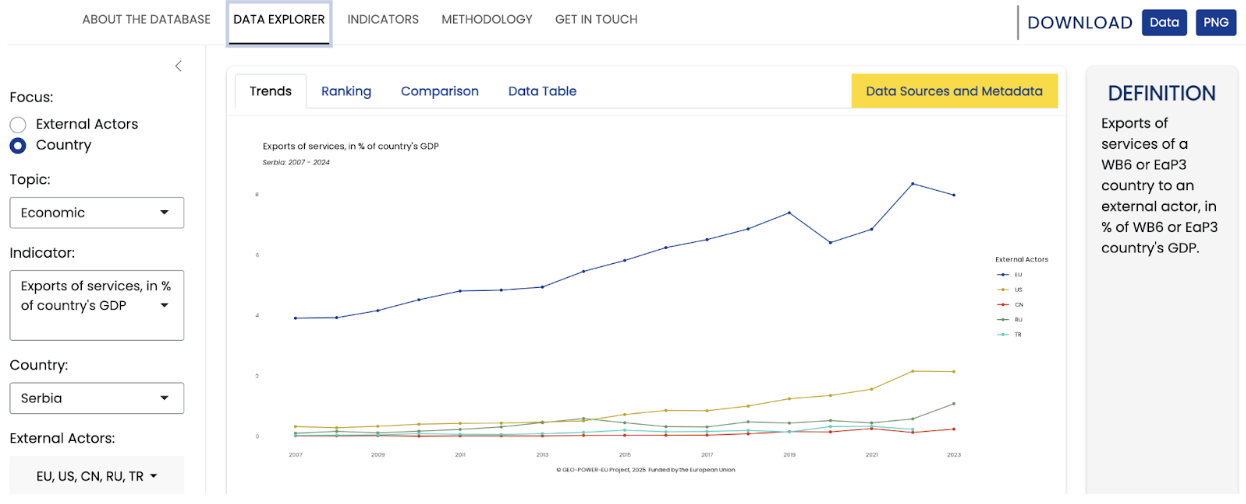
To make this data even more accessible, we’ve launched a weekly blog series, published every Wednesday, featuring insights and case studies drawn directly from the database. These posts offer targeted analysis for anyone interested in understanding evolving geopolitical dynamics across the region. Recent posts include:
- Serbia’s Quest for In-Betweenness
- What’s driving Chinese FDI in the Western Balkans – and what should be done about it?
- Rethinking EU Strategy in the Western Balkans
- North Macedonia and Albania: Two Balkan Paths Toward the West
Consortium Meeting & Public Conference in Belgrade |
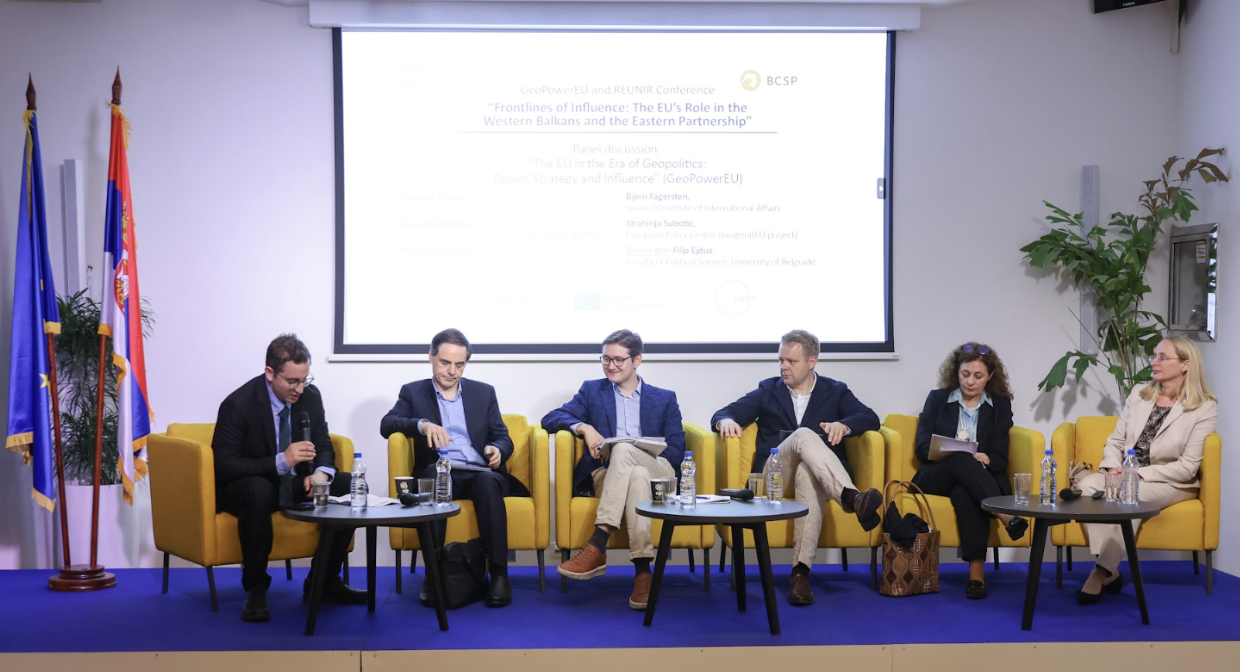
The following day, on May 27, the consortium held its second in-person meeting at the Institute for Philosophy and Social Theory. Partners reviewed progress across all active Work Packages. The meeting closed with a strategic foresight session led by Valery Perry.
GEO-POWER TALKS: Episode 2 – Transatlantic Shifts Post-2024 US Elections |
Episode 2 – Navigating Security and Alliances: The New US Administration, Ukraine, and the Western Balkans
This latest episode of GEO-POWER Talks analyzes the geopolitical implications of the 2024 U.S. elections for Europe, with a special focus on Ukraine and the Western Balkans. Our expert panel explores potential shifts under a second Trump administration and considers what these changes could mean for the European Union’s strategic autonomy. The discussion features Daniel Fried, Weiser Family Distinguished Fellow at the Atlantic Council and former U.S. Ambassador to Poland, Dr. Anna Osypchuk of Kyiv-Mohyla Academy, Dr. Kurt Bassuener from the Democratization Policy Council (DPC), and Dr. Senada Šelo Šabić of the Institute for Development and International Relations (IRMO).
Listen here.🎙️
What GEO-POWER-EU Researchers Have Been Up To? |
GEO-POWER-EU researchers have remained active across academic, media, and policy arenas—bringing evidence-based insights into today’s most pressing geopolitical debates.
Notable publications include Branimir Jovanovic on Trump’s Trade War and the Balkans, Prof. Nikolaos Tzifakis and Eleni Vasdoka on Serbia’s Strategic Hedging, Marcus How and Benedetta Locatelli on Geopolitical Shifts in the Western Balkans, and a new book chapter on Security Regionalization by Marko Kovacevic and Ana Bojinovic Fenko. Additionally, Dr. Tena Prelec co-authored the new book Indulging Kleptocracy, examining informal governance and external influence in the Western Balkans. She presented it at the European Parliament Library alongside Dr. Sonja Stojanovic Gajic, sharing insights on corruption and foreign influence—drawing on findings from the GEO-POWER-EU project.
Researchers also joined to key events, including the InvigoratEU Mid-Term Conference and a roundtable on EU-Armenia relations moderated by Dr. Panagiota Manoli. Additionally, Dr. Manoli hosted a special classroom event with EU Ambassador Vassilis Maragos at the University of the Peloponnese, giving students the opportunity to engage directly with EU foreign policy in practice. Project Coordinator Prof. Nikolaos Tzifakis also presented the project on Greek television, reflecting on the EU’s evolving geopolitical role.
What’s next? |
GEO-POWER-EU is currently finalizing several key research activities. Task 2.1 investigates the gap between EU policies and the expectations of stakeholders in the Western Balkans and Eastern Partnership countries through in-depth elite interviews in both regions and within EU institutions. Task 2.4 explores the ongoing relevance of the Eastern Partnership in a post-Ukraine-invasion context, particularly regarding the EU’s engagement with Georgia, Moldova, and Ukraine. Meanwhile, Task 3.6 examines the challenges to EU defence cooperation and strategic autonomy. Looking ahead, Task 3.2 is now underway, focusing on the development of three indices measuring the geopolitical influence of external actors—drawing on sentiment analysis of social media discourse related to key international events across six countries.
Subscribe to our newsletter here and follow us on Twitter, BlueSky, LinkedIn, Facebook, and SoundCloud for updates!

